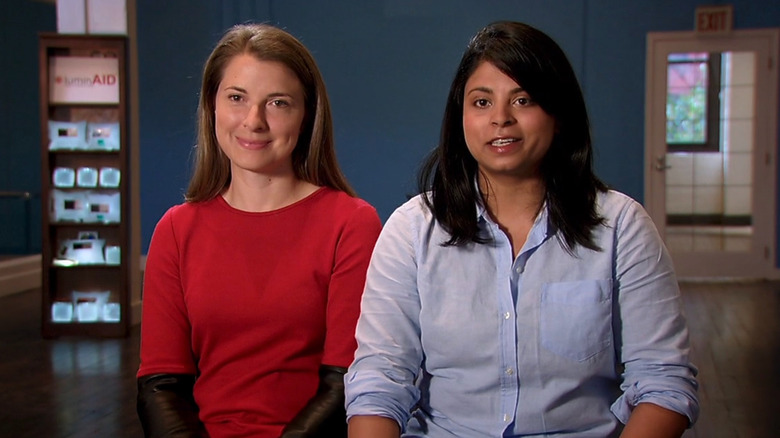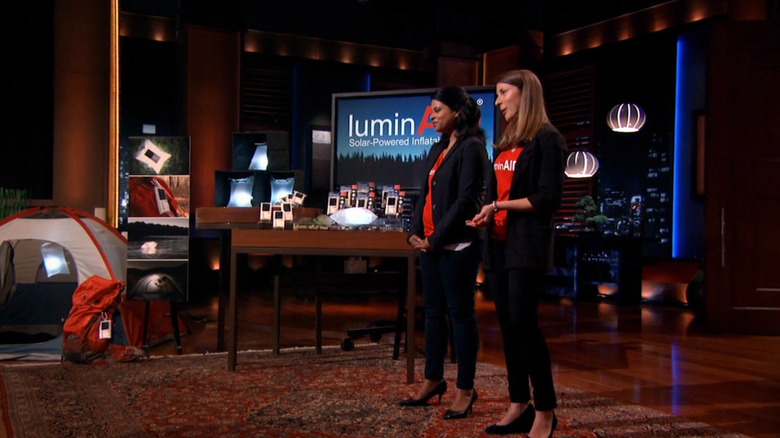Whatever Happened To LuminAID After Shark Tank?
While most entrepreneurs who appear on "Shark Tank" are lucky to grab the attention of even one shark, Anna Stork and Andrea Sreshta had their pick of the litter when it came to who would invest in their LuminAID solar-powered lanterns. So did going with Mark Cuban end up being a bright idea?
Their deal with Cuban successfully closed in 2015. The entrepreneurial duo made an appearance on an update segment featured on Season 7 of "Shark Tank." Only nine months after their initial time on the show, the company's sales skyrocketed from just over $1 million to $2 million. Along with expanding LuminAID's product line to include longer-lasting lights, the added resources also allowed the team to further their efforts in humanitarianism. Working with the organization ShelterBox, Srestha and Stork aided homeless citizens in Malawi following one of the worst floods experienced by the East African country in decades. "It was our first time seeing the light in use by people truly in need," Stork said in an interview with Inc. "It was very touching and motivating," Since then, LuminAID has provided over 150,000 lights to other countries facing emergency situations.
Their wide range of products, which can be found on their website and Amazon as well as retailers such as Walmart, have brought in an annual revenue of $1 million. The company's net worth is estimated to be $7 million. But even before these accomplishments, the team managed to light up "Shark Tank" by accomplishing a rare feat.
Every shark saw the light in LuminAID
Following the devastating 2010 Haiti earthquakes, Columbia University graduate students Andrea Sreshta and Anna Stork developed prototypes of the LuminAID. The product itself is a portable light panel that can be inflated and is powered by the sun, making it a perfect choice for boaters and campers. Additionally, with each LuminAID sold, they donate a light to someone in need. The team started an Indiegogo for LuminAID where they managed to raise over $51,000 on a $10,000 goal.
The team shared these accomplishments and more on Season 6 of "Shark Tank," where they sought an investment of $200,000 for 10% equity. Having only been in business for two years, the business had brought in over $1 million, with their partners at ShelterBox purchasing 30,000 units alone. Columbia University already had 2% equity in the company and was earning 2% of royalties from retail. In their Season 6 episode, the duo seeks a more involved strategic partner to help transform LuminAID into a global brand.
In a rare instance on "Shark Tank," all five investors make an offer. Kevin O'Leary, liking the royalty deal from their school, offers them $250,000 but rather than asking for a portion of the company itself, he aims to take 4% royalty until he makes back $800,000. Lori Grenier, Daymond John, and Robert Herjavec only want a stake in the company. In the end, it is Mark Cuban's proposal of $200,000 for 15%, along with the chance to lead the next round of funding, that gets accepted.

